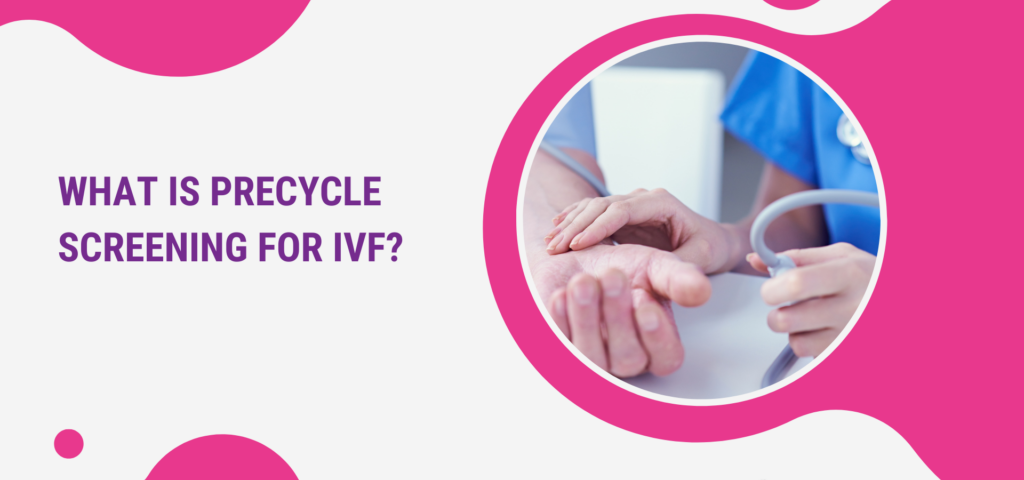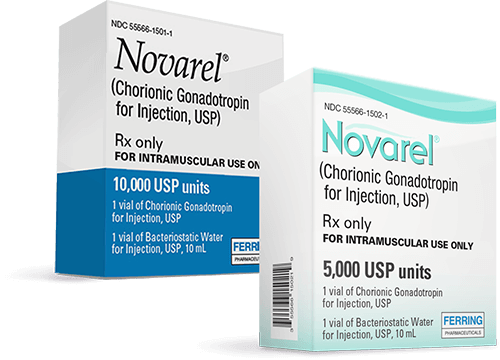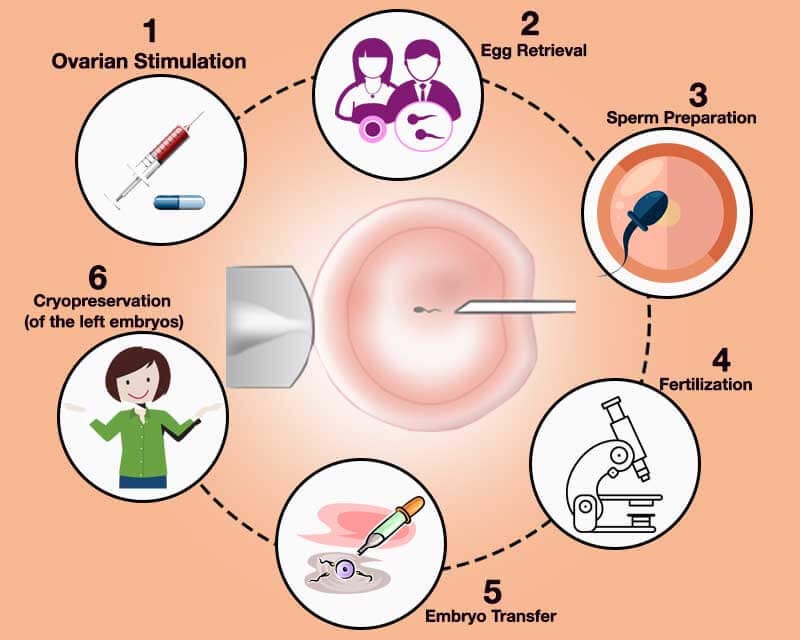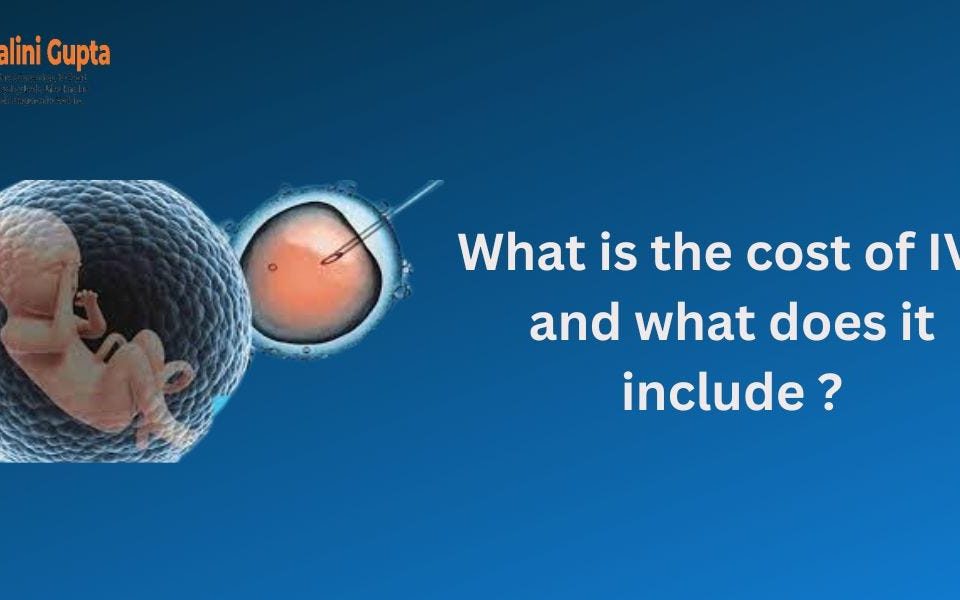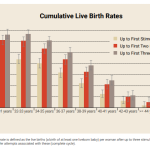
What Is the Live Birth Rate for IVF?
April 22, 2025
Which Is Associated with IVF-ET? Exploring the World of In Vitro Fertilization and Embryo Transfer
April 22, 2025What Is Precycle Screening for IVF?
If you’re thinking about starting a family through in vitro fertilization (IVF), you’ve probably heard the term “precycle screening” floating around. It might sound like just another step in an already overwhelming process, but it’s actually a key part of setting yourself up for success. Precycle screening is all about making sure you and your partner (if you have one) are in the best possible place—physically and emotionally—before diving into IVF. It’s like laying the foundation for a house: you wouldn’t start building without checking the ground first, right?
In this article, we’re going to unpack everything you need to know about precycle screening for IVF. We’ll cover what it is, why it matters, and what you can expect when you go through it. Plus, we’ll dig into some details that don’t always get the spotlight—like how your lifestyle plays a role, the latest research shaping these tests, and practical tips to make the process smoother. Whether you’re just curious or ready to take the plunge, this guide is here to help you feel informed and empowered.
Why Precycle Screening Is a Big Deal
Precycle screening isn’t just a box to check off—it’s your first step toward understanding what your body needs to make IVF work. Think of it as a full-body tune-up before a big road trip. Doctors use these tests to spot anything that could throw a wrench in your fertility journey, from hormone imbalances to hidden health issues. The goal? To boost your chances of getting pregnant and having a healthy baby.
IVF is a big investment—time, money, and emotions are all on the line. Precycle screening helps make sure that investment pays off by catching problems early. For example, if your thyroid isn’t working quite right, it could mess with your ability to conceive or carry a pregnancy. A simple blood test can flag that issue before you start, saving you from heartache down the road. Studies show that addressing these kinds of problems upfront can improve IVF success rates by up to 20% in some cases, according to research from the American Society for Reproductive Medicine.
But it’s not just about the physical stuff. This process also gives you a chance to mentally prepare. Knowing what’s ahead can ease some of that stress and uncertainty, which, let’s be honest, is a huge part of IVF. So, in a nutshell, precycle screening is about getting the full picture—body and mind—before the real work begins.
What Happens During Precycle Screening?
So, what exactly goes down when you sign up for precycle screening? It’s not one single test but a whole lineup of checks tailored to you and your situation. Here’s a rundown of what you might encounter, broken down into bite-sized pieces.
Blood Tests: The Basics of Your Biology
First up, you’ll probably get some blood drawn. These tests are like a sneak peek under the hood of your reproductive system. They check things like:
- Hormone Levels: Your doctor will look at hormones like FSH (follicle-stimulating hormone), LH (luteinizing hormone), and estrogen. These tell them how your ovaries are doing and if they’re ready to produce eggs.
- Thyroid Function: A wonky thyroid can mess with ovulation and pregnancy. A quick TSH (thyroid-stimulating hormone) test can spot trouble.
- Vitamin D: Low levels are linked to lower IVF success rates. A 2023 study in Fertility and Sterility found that women with healthy Vitamin D levels had a 15% higher chance of a successful embryo transfer.
You might feel a little pinch, but these tests are quick and give your doctor a ton of info to work with.
Infectious Disease Screening: Keeping Everyone Safe
Next, they’ll screen for infections like HIV, hepatitis B, and hepatitis C. This isn’t just about you—it’s also about protecting your future baby and making sure the IVF lab stays safe. If something pops up, don’t panic. Most issues can be managed with treatment or extra precautions during the process.
Uterine and Ovarian Checkup: The Inside Scoop
Your doctor will want to see what’s going on inside your reproductive system. This usually means:
- Ultrasound: A wand (don’t worry, it’s not as scary as it sounds) checks your ovaries for cysts or other quirks and counts your antral follicles—those are the little sacs where eggs grow.
- Hysterosalpingogram (HSG): This is an X-ray with dye to see if your fallopian tubes are open and your uterus looks good. It might feel a bit crampy, but it’s over fast.
These tests help figure out if your body’s ready to host an embryo or if there’s some prep work needed first.
Semen Analysis: For the Guys
If you’ve got a male partner, they’ll need to step up too. A semen analysis checks sperm count, movement, and shape. Even if you’re using donor sperm, this step might still apply to rule out any surprises. Fun fact: a 2024 study from the Journal of Andrology found that men who cut back on caffeine and alcohol before IVF had a 10% boost in sperm quality. Small changes, big impact!
Genetic Screening: Looking at the Blueprint
Some clinics offer genetic tests to check for conditions like cystic fibrosis or chromosomal issues that could affect your baby. This isn’t always standard, but it’s becoming more common as technology gets better. It’s a personal choice—talk to your doctor about whether it’s right for you.
The Emotional Check-In
This part’s less formal but just as important. Your clinic might ask about your stress levels or offer a chat with a counselor. IVF can be a rollercoaster, and they want to make sure you’ve got support lined up. It’s okay to say, “Hey, I’m freaking out a little.” They’ve heard it all before.
How Long Does Precycle Screening Take?
Timing-wise, precycle screening usually wraps up in a few weeks. Blood tests and ultrasounds can happen pretty quick—sometimes in a single visit. The HSG or semen analysis might need separate appointments, but it’s not a months-long ordeal. Once everything’s done, your doctor will sit down with you to go over the results and plan your IVF cycle. Think of it as a pit stop before the big race—short but crucial.
What the Latest Research Says About Precycle Screening
Science is always moving forward, and precycle screening is no exception. Here’s what’s new and noteworthy in 2025:
- Personalized Testing: Clinics are starting to use AI to tailor screening based on your health history. A 2024 study from Reproductive BioMedicine Online showed that personalized plans increased success rates by 12% compared to one-size-fits-all approaches.
- Lifestyle Matters: Research is doubling down on how diet, sleep, and stress affect IVF outcomes. A 2023 trial in Human Reproduction found that women who ate a Mediterranean diet during precycle screening had 18% higher egg quality.
- Expanded Genetic Insights: New tests can now spot tiny DNA glitches that older methods missed. This means better odds of picking healthy embryos, especially if you’re over 35.
These updates show how precycle screening is evolving to be more precise and proactive. It’s not just about finding problems—it’s about fine-tuning your body for the best shot at success.
Interactive Quiz: Are You Ready for Precycle Screening?
Let’s take a quick break and see where you stand. Answer these questions with a simple yes or no, and tally up your “yes” answers at the end:
- Do you know your basic health stats, like blood pressure or recent illnesses?
- Have you talked to your partner (if you have one) about IVF?
- Are you okay with a few needle pricks and doctor visits?
- Do you have a rough idea of your family’s medical history?
- Are you ready to make some lifestyle tweaks if needed?
Results:
- 4-5 Yeses: You’re in great shape to start!
- 2-3 Yeses: You’re on the right track—maybe brush up on a couple things.
- 0-1 Yes: No worries, just take it step by step with your doctor.
This little quiz isn’t official, but it’s a fun way to check in with yourself before diving in.
Lifestyle Tweaks to Ace Your Precycle Screening
Your doctor’s going to look at more than just test results—they’ll care about how you’re living day-to-day. Here’s how you can get ahead of the game:
What to Do ✔️
- Eat Smart: Load up on fruits, veggies, and lean proteins. Think colorful plates—berries, spinach, salmon. These boost egg and sperm health.
- Move a Little: Aim for 30 minutes of walking or yoga most days. It’s not about marathons; it’s about keeping your blood flowing.
- Sleep Well: Shoot for 7-8 hours a night. A 2024 study in Sleep Medicine linked good sleep to a 14% bump in IVF success.
What to Skip ❌
- Smoking: It’s a no-go. It cuts egg quality and sperm count like nobody’s business.
- Too Much Booze: A glass of wine here and there? Fine. Binge drinking? Not so much—it messes with hormones.
- Stress Overload: Easier said than done, but try to dial it back. Stress can throw off your cycle.
Small shifts like these can make a big difference when those test results roll in. Plus, they’re good for you no matter what!
A Peek Into the Emotional Side of Precycle Screening
Let’s get real for a sec—precycle screening isn’t just about labs and scans. It’s also a moment when the reality of IVF hits home. You might feel excited, nervous, or even a little scared, and that’s totally normal. One woman I heard about, let’s call her Sarah, said she felt like she was “taking a final exam” when she got her blood drawn. But once the results came back clear, she felt a wave of relief—like she’d passed with flying colors.
Your clinic might not test your feelings, but they’ll want to know you’re okay. Some offer support groups or counselors, and honestly, that can be a game-changer. Talking to someone who gets it can lighten the load. If they don’t bring it up, don’t be shy—ask about it. You’re not in this alone.
Common Questions About Precycle Screening, Answered
You’ve probably got a million questions swirling around. Here are some big ones that pop up a lot, with straight-up answers:
Does It Hurt?
Not really. Blood draws sting for a second, and the HSG might feel like mild cramps, but it’s not torture. Most people say it’s more awkward than painful.
What If Something’s Wrong?
If a test flags an issue—like low hormone levels or a uterine fibroid—your doctor will talk you through it. Sometimes it’s an easy fix, like a pill or a quick procedure. Other times, it might mean tweaking your IVF plan. Either way, finding it now is better than later.
Can I Skip It?
Technically, yes, but it’s a gamble. Skipping screening could mean missing something that tanks your cycle. Clinics usually require it for a reason—it’s your safety net.
How Much Does It Cost?
It varies. In the U.S., precycle screening can run $500-$2,000, depending on what tests you need and where you are. Insurance might cover some or all of it—check with your provider.
These answers should clear up the fog, but if you’re still wondering, jot down your questions for your doctor. They’re there to help.
A Deeper Dive: 3 Things You Won’t Find in Every Article
Most guides on precycle screening stick to the basics—blood tests, ultrasounds, done. But there’s more to the story that doesn’t always get airtime. Here are three angles that deserve a closer look:
1. The Microbiome Connection
Your gut might not seem like it has much to do with IVF, but science says otherwise. A 2024 study in Nature Reproductive Health found that women with a balanced gut microbiome had a 17% higher implantation rate during IVF. Precycle screening doesn’t test your gut directly, but some cutting-edge clinics are starting to ask about digestion and diet. Probiotics or a fiber-rich diet could give you an edge—something to chat about with your doctor.
2. Environmental Toxins and Your Results
Ever think about how the stuff around you—like plastics or air pollution—might affect IVF? Research from the Environmental Health Perspectives journal in 2023 showed that exposure to chemicals like BPA (found in some plastics) can lower egg quality. Precycle screening doesn’t screen for toxins, but you can take steps yourself: swap plastic water bottles for glass, avoid harsh cleaners, and eat organic when you can. It’s a small tweak with potential payoff.
3. The Partner Dynamic
If you’re doing IVF with a partner, precycle screening isn’t just about you—it’s a team effort. A lot of articles skip this, but how you and your partner handle the process can shape everything. A 2025 survey by the Fertility Network found that couples who talked openly about their results and fears had 25% less stress during IVF. So, make time to debrief together after appointments. It’s not a test, but it’s just as important.
These nuggets add layers to the precycle picture—stuff you can act on to stand out from the crowd.
Interactive Checklist: Your Precycle Prep Plan
Ready to get started? Here’s a handy checklist to keep you on track. Check off each one as you go:
- ✔️ Schedule your first appointment with a fertility clinic.
- ✔️ Gather any past medical records (like old blood tests or surgeries).
- ✔️ Cut back on caffeine or smoking if you’re a fan of either.
- ✔️ Start a simple daily walk or stretch routine.
- ✔️ Talk to your partner or a friend about how you’re feeling.
This isn’t homework—it’s just a way to feel in control as you kick things off. How many can you check off this week?
Real Stories: What Precycle Screening Feels Like
Sometimes, hearing from someone who’s been there makes it all click. Take Mia, a 34-year-old teacher from California. She went into precycle screening thinking it’d be a breeze—just a few tests, no biggie. But when her thyroid levels came back off, she was thrown for a loop. “I didn’t even know my thyroid mattered,” she said. A few months of meds later, her levels were golden, and she started IVF with confidence.
Then there’s Jake, a 29-year-old mechanic. His semen analysis showed low motility, which freaked him out at first. But after ditching energy drinks and adding more sleep, his next test was a huge improvement. “It was like a wake-up call,” he said. “I didn’t realize I could change it.”
These stories show how precycle screening can surprise you—but also how it can set you up to win.
Precycle Screening vs. Cycle Monitoring: What’s the Difference?
You might hear “cycle monitoring” tossed around too, and it’s easy to mix it up with precycle screening. Here’s the deal:
| Aspect | Precycle Screening | Cycle Monitoring |
|---|---|---|
| When It Happens | Before your IVF cycle starts | During your IVF cycle |
| What It Checks | Overall health and readiness | How your body’s responding to meds |
| Tests Involved | Blood work, ultrasound, HSG, etc. | Frequent ultrasounds, hormone checks |
| Goal | Spot issues and prep your body | Track egg growth and timing |
Precycle screening is the warm-up; cycle monitoring is the main event. Both matter, but they’re playing different roles in your IVF story.
Tips to Make Precycle Screening Less Stressful
Let’s be honest—this process can feel like a lot. Here are some tricks to keep your cool:
- Bring a Buddy: Take a friend or partner to appointments. They can take notes or just keep you laughing.
- Ask Away: Write down questions beforehand so you don’t forget. No question’s too small.
- Treat Yourself: Plan something fun after—like coffee or a movie. It’s a little reward for showing up.
- Breathe: If you’re nervous, try a quick breathing trick: inhale for 4 seconds, hold for 4, exhale for 4. Repeat a few times.
You’ve got this. It’s just one step at a time.
What Happens After Precycle Screening?
Once the tests are done, your doctor will map out your next moves. If everything’s good, you might jump straight into your IVF cycle—starting meds to rev up your ovaries. If there’s a hiccup, like a polyp or low Vitamin D, they’ll tackle that first. Either way, you’ll get a clear plan, usually within a week or two of your last test.
This is also when you’ll talk money and timelines. IVF isn’t cheap, and knowing the costs upfront helps. Some clinics offer payment plans or financing—worth asking about if you need it.
A Quick Poll: What’s Your Biggest Precycle Worry?
Let’s get interactive again. Pick the one that hits closest to home:
- A) Will it hurt?
- B) What if they find something bad?
- C) How am I going to pay for all this?
- D) I’m just overwhelmed by the whole thing.
Drop your answer in your head (or share it with a friend if you’re feeling chatty). No pressure—just a way to see what’s on your mind. You’re not alone in any of these, promise.
The Bottom Line: Why Precycle Screening Is Worth It
At the end of the day, precycle screening is your launchpad for IVF. It’s not glamorous, and yeah, it’s a little nerve-wracking, but it’s the best way to stack the deck in your favor. By catching issues early, tweaking your lifestyle, and getting a game plan, you’re giving yourself a real shot at that positive pregnancy test. And isn’t that what it’s all about?
Think of it like this: if IVF is a marathon, precycle screening is your training. It’s not the finish line, but it gets you ready to run. So, take a deep breath, grab your doctor’s hand (figuratively, of course), and step into it with your eyes wide open. You’re building something amazing—one test at a time.
Got more questions? Your clinic’s just a call away, and they’d love to walk you through it. Here’s to the journey ahead—wishing you strength, hope, and maybe a little luck along the way!

